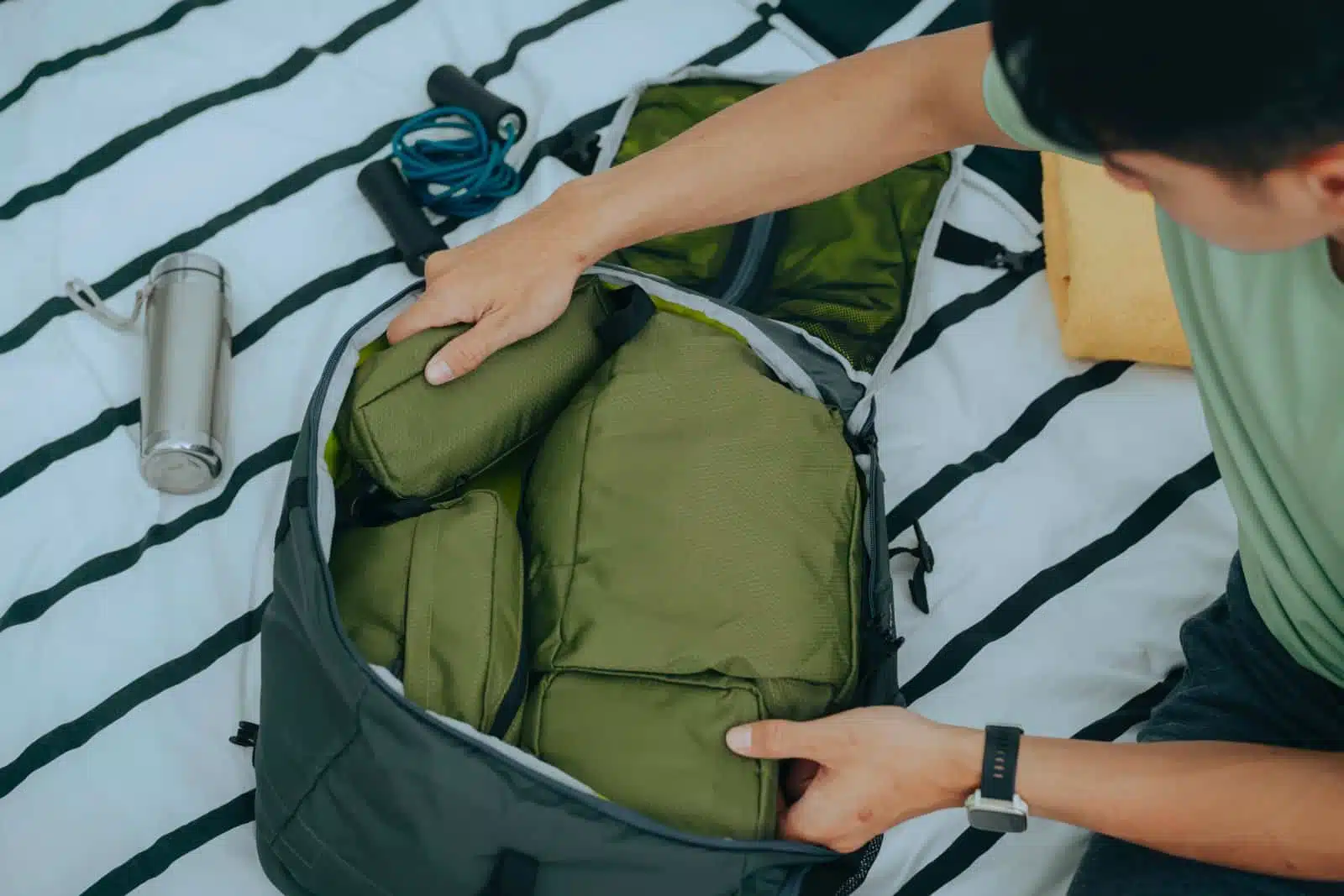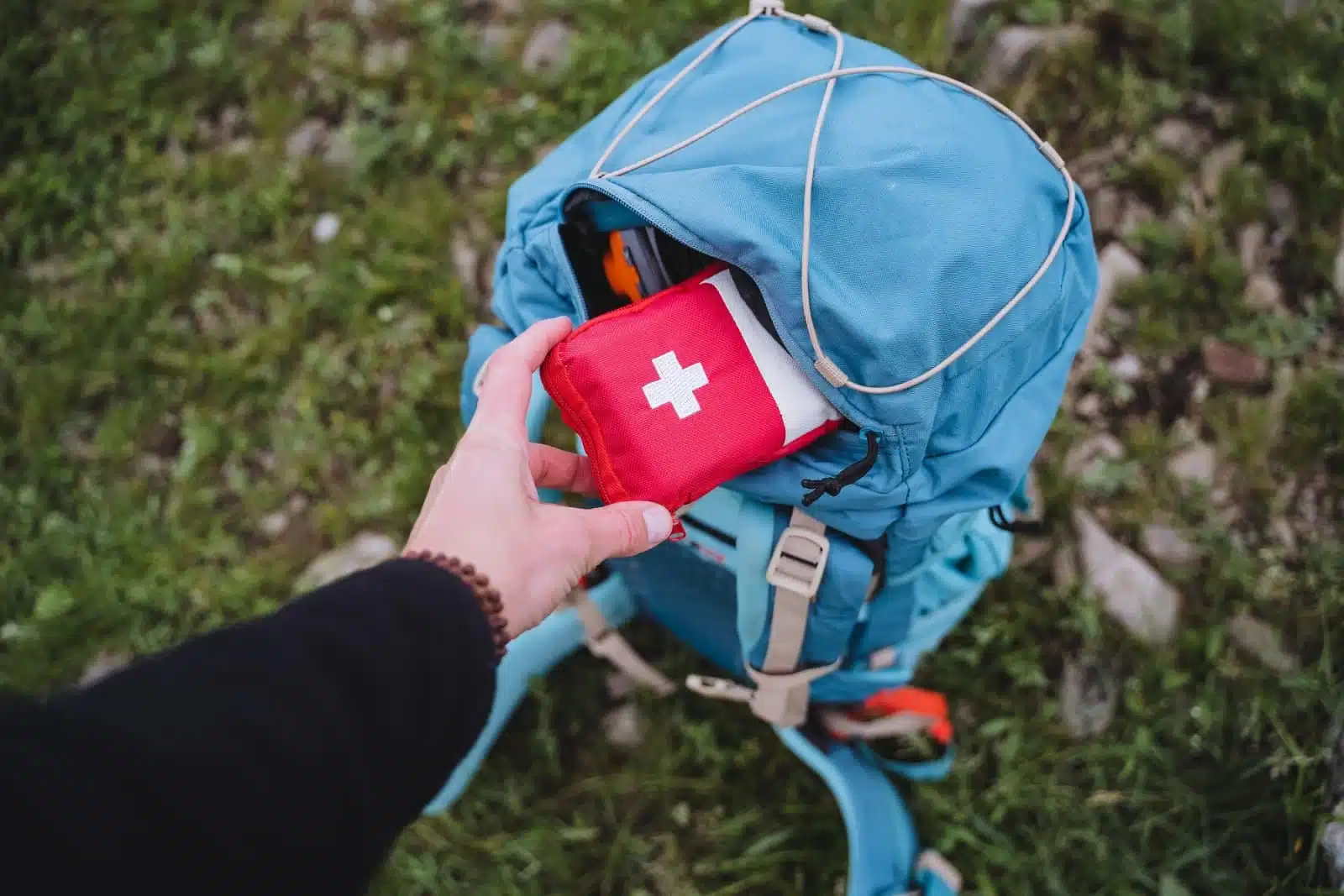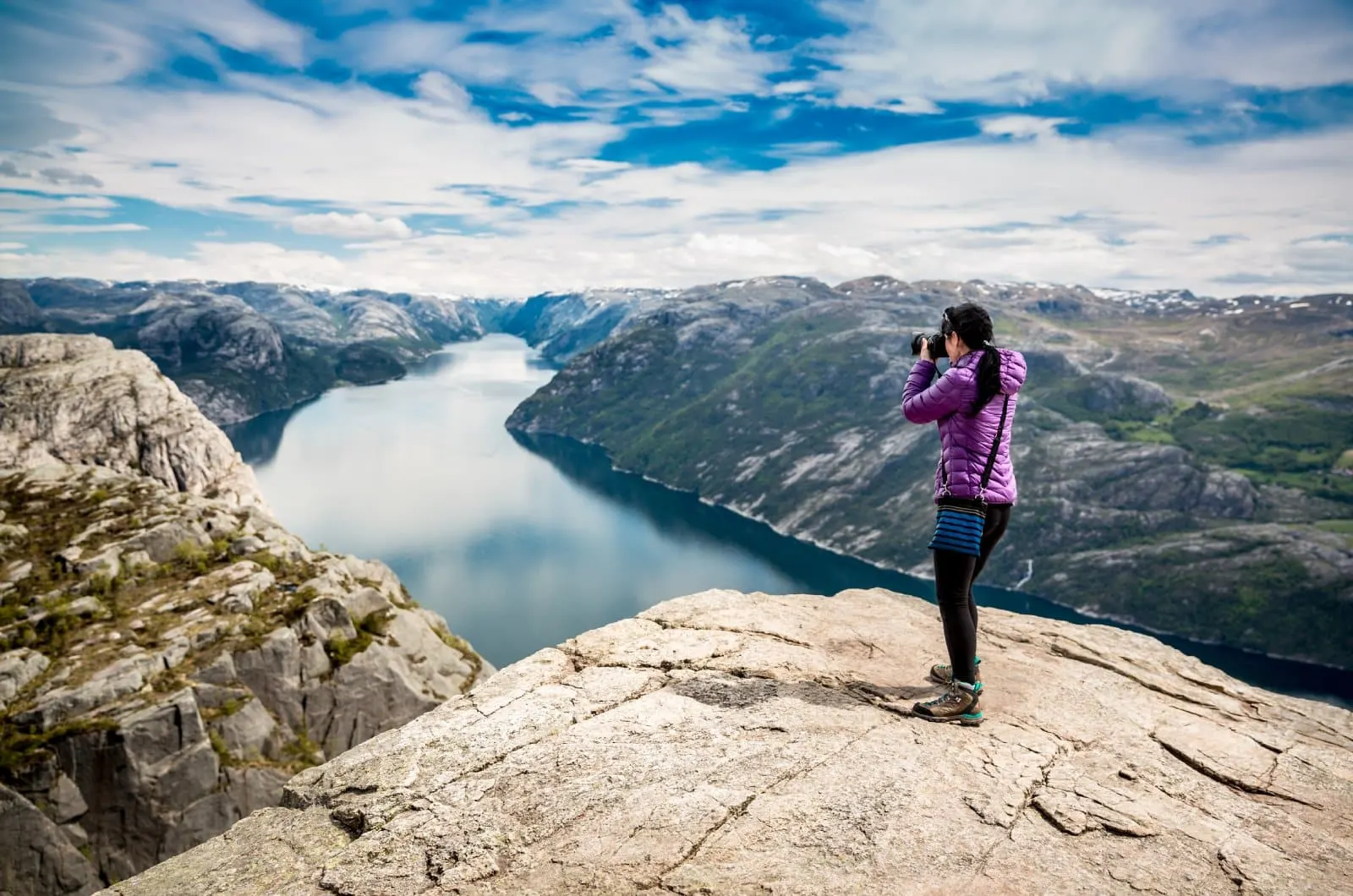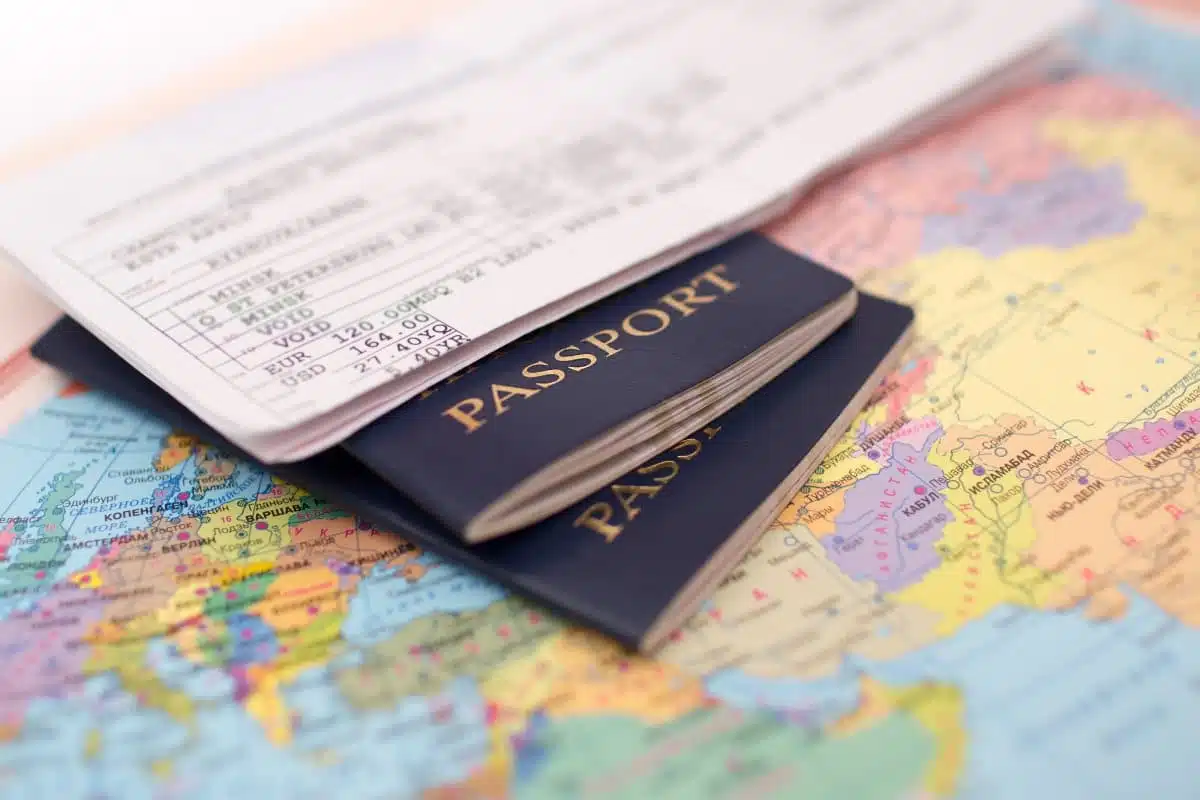Long-term travel is an enriching and life-changing adventure but requires meticulous planning and strategic packing. Whether you’re embarking on a months-long global exploration or a prolonged backpacking trip, this guide will provide essential tips and insights to help you navigate the complexities of extended travel. From financial planning to choosing the right gear, we’ll cover everything you need to know to confidently embark on your long-term journey.
1. Financial Planning and Budgeting

Image Credit: Shutterstock / fizkes
Effective financial planning is the foundation of any successful long-term travel. Begin by outlining a comprehensive budget for all foreseeable expenses—consider accommodation, transportation, meals, activities, insurance, and contingencies. Explore the cost of living for your chosen destinations; this will help you set realistic daily budget goals. In the digital age, managing your finances on the go is easier than ever. Consider travel-focused financial tools, like no-foreign-transaction-fee credit cards or a dedicated travel savings account. Regularly monitor your expenditures; numerous apps and tools can assist in tracking and categorizing your spending. This vigilant financial oversight is a strategy to extend your travel duration and enhance your experiences. Remember, the unexpected can and does happen, so a financial buffer is essential.
Insider’s Tip
Always have a financial buffer for unexpected expenses.
2. Choosing Destinations Wisely

Image Credit: Shutterstock / Roman023_photography
Long-term travel involves carefully selecting destinations that align with your interests, budget, and travel rhythm. Research is your ally here. Research the specifics of each location, from the cost of living and cultural experiences to weather patterns and safety standards. Weigh up the charm of off-the-beaten-path destinations against well-trodden tourist hubs. Diverse destinations enrich your travels and balance your budget—mixing more affordable regions with pricier locales. Visa regulations are another crucial factor; some countries offer long-term visas or visa extensions for nomadic travelers, which can significantly impact your itinerary.
Insider’s Tip
Balance out expensive countries with more affordable ones to keep your overall budget in check.
3. Accommodation Strategies

Image Credit: Shutterstock / Song_about_summer
Securing the right accommodation is key to a successful long-term travel experience. Unlike short vacations, where a hotel might suffice, extended stays require thinking more like a local. Options such as Airbnb, extended-stay hotels, or house-sitting can provide comfort and a deeper immersion into the local culture. These choices often come with the added benefit of kitchen access, allowing you to save money by cooking your own meals. Engage with local online communities or expat groups for leads on affordable, long-term rentals. In popular tourist destinations, look beyond the central areas to neighboring towns or suburbs where you might find better deals. The length of your stay can often be a bargaining chip for negotiating lower rates, so don’t hesitate to ask for a discount for extended bookings.
Insider’s Tip
Negotiate rates for longer stays to save money.
4. Packing Efficiently

Image Credit: Shutterstock / Febriandi Dimas Wara
The art of packing for long-term travel is finding the balance between preparedness and minimalism. Choose versatile, durable clothing suitable for different climates and cultural environments. Favor quality over quantity, selecting items that can withstand repeated use and washing. Remember, you’ll carry everything you pack, so keep your luggage manageable. Essentials like a reliable, multi-purpose travel backpack, lightweight rain gear, and comfortable, all-terrain shoes are non-negotiable. Opt for travel-sized toiletries and consider eco-friendly, multi-purpose products. Packing cubes are a lifesaver for organization, helping you keep track of your items over months of travel.
Insider’s Tip
Use packing cubes or compression bags to maximize space and organize your belongings.
5. Staying Connected

Image Credit: Shutterstock / PeopleImages.com – Yuri A
In today’s connected world, ensuring reliable communication channels during long-term travel is crucial. A global SIM card or an international data plan can connect you across borders. Portable Wi-Fi devices offer flexibility, especially in remote or rural areas. A lightweight, durable laptop is essential for those working on the go. Cloud storage and online backup services safeguard your important documents and memories. Equally important are offline resources like downloaded maps or translation apps that you can access without an internet connection. Staying connected also means staying informed—regularly check local news and travel advisories for your current location.
Insider’s Tip
Use communication apps that work well on low bandwidth to stay connected in remote areas.
6. Travel Insurance

Image Credit: Shutterstock / REDPIXEL.PL
Comprehensive travel insurance is a must for long-term travelers. Your policy should cover a broad range of scenarios, including medical emergencies, trip cancellations or interruptions, lost or stolen luggage, and emergency evacuations. Read the policy details carefully to understand what is and isn’t covered, and make sure the coverage limits are adequate for your needs. Choosing a policy that offers flexibility in case your travel plans change is also wise. Store a digital copy of your insurance policy in an easily accessible online location, and carry a physical copy as a backup.
Insider’s Tip
Choose a policy that allows for extensions if you decide to prolong your travel.
7. Health and Safety

Image Credit: Shutterstock / Aleksey Matrenin
When embarking on long-term travel, your health and safety should be at the forefront of your planning. This involves more than just packing a basic first-aid kit; it’s about proactive health management. Ensure you’re up-to-date with all necessary vaccinations and understand the health risks associated with your destinations. Research the countries’ healthcare systems you’ll be visiting and identify reputable clinics or hospitals in each area. Additionally, be aware of the local safety conditions, including political unrest or environmental hazards. Adapt to the cultural norms and standards to avoid misunderstandings or conflicts. Regularly update a list of emergency contacts, including local emergency services and your home country’s embassy or consulate. Being prepared and informed can make all the difference in handling unexpected health or safety issues during your travels.
Insider’s Tip
Register with your embassy or consulate in each country for safety alerts and assistance.
8. Local Transportation

Image Credit: Shutterstock / Dudarev Mikhail
Navigating local transportation is an integral part of long-term travel. Each destination will have unique options, from intricate public transit systems to more traditional methods like rickshaws or tuk-tuks. Familiarize yourself with the most common forms of transport in each location and consider purchasing longer-term passes for savings in places you plan to stay for a while. For more independence, renting a car or a bike can be excellent options, but always ensure you’re comfortable with the local driving conditions and legal requirements. Utilize ride-sharing apps where available for convenience, though be mindful of the costs. Understanding a few key phrases related to transportation in the local language can immensely simplify your daily travels. It can also aid in getting fair prices.
Insider’s Tip
Learn a few key phrases in the local language related to transportation to navigate more easily and negotiate fares.
9. Cultural Immersion and Language Skills

Image Credit: Shutterstock / Delbars
Long-term travel offers an unparalleled opportunity to immerse yourself in diverse cultures and understand and respect local customs, traditions, and social etiquette. Investing time in learning about your destinations’ history and cultural nuances enriches your experience and fosters deeper connections with local communities. Language is a key to unlocking these cultural insights. While fluency is not necessary, knowing basic phrases makes daily interactions smoother and demonstrates respect for the local culture. Regular practice through language learning apps or local classes will enhance your confidence and ability to engage with locals more meaningfully.
Insider’s Tip
Use language learning apps or take local language classes upon arrival to quickly pick up essential phrases.
10. Documenting Your Journey

Image Credit: Shutterstock / Andrei Armiagov
Documenting your long-term journey serves multiple purposes: it preserves memories, allows for self-reflection, and allows you to share your experiences with others. Whether through a travel blog, a journal, photography, or video, find a medium that resonates with you and commit to updating it regularly. This documentation can become a valuable resource for other travelers and a cherished personal memoir. It’s also a way to reflect on your growth and experiences over time. Remember to back up your digital data regularly on cloud storage or an external hard drive to safeguard your memories.
Insider’s Tip
Regularly back up your photos and notes to cloud storage to avoid losing them.
11. Sustainable Travel Practices

Image Credit: Shutterstock / Jens Breuer
As a long-term traveler, you have a unique opportunity to practice and promote sustainable travel. This means making choices that positively impact the local environment and community. Opt for eco-friendly accommodation, engage in responsible wildlife tourism, and judiciously use resources like water and electricity. Supporting local businesses by dining at local restaurants and buying local products enhances your travel experience and contributes to the local economy. Be mindful of your carbon footprint and seek ways to offset it, such as choosing overland travel over short-haul flights when possible.
Insider’s Tip
Participate in local environmental or community projects where possible.
12. Maintaining Relationships

Image Credit: Shutterstock / GaudiLab
Long-term travel can strain personal relationships, but with effort and technology, staying connected with loved ones back home is possible. Regular communication is key; schedule regular calls or video chats to keep in touch with family and friends. Social media and messaging apps are great tools for sharing updates and staying a part of each other’s daily lives, even from afar. While nurturing relationships back home, don’t overlook the importance of building new connections on the road. Meeting fellow travelers and locals can lead to lasting friendships and provide support and camaraderie during your journey. These relationships can enrich your travel experience, offering local insights and adding a personal dimension to your adventures. Remember, balancing old and new relationships requires effort and intention. However, the rewards are immense, making your long-term travel a more fulfilling and less lonely experience.
Insider’s Tip
Set regular times to catch up with loved ones to maintain consistency in your relationships.
The Bottom Line
Embarking on a long-term travel adventure is an exhilarating and transformative experience. However, it comes with its own set of challenges. With careful planning, efficient packing, and an open mind, you can navigate these challenges and maximize your extended journey. Remember, long-term travel is about the places you visit, your experiences, and the growth you undergo along the way. Embrace each moment, stay adaptable, and enjoy the journey of a lifetime. Safe travels!
More From The Green Voyage
12 Best Practices for Sustainable Travel in 2024 – How to Travel With Minimal Environmental Impact
Unlocking Hotel Perks – A Traveler’s Guide to Maximizing Hotel Reward Programs for Optimal Benefits
Travel Hacks for Frequent Flyers – 6 Tips and Tricks to Make the Best of Air Travel
The post 12 Top Tips to Long-Term Travel 2024 first appeared on The Green Voyage.
Featured Image Credit: Shutterstock / Aleksandr Ryzhov.
Tips for Trip Success
Book Your Flight
Find an inexpensive flight by using Kayak, a favorite of ours because it regularly returns less expensive flight options from a variety of airlines.
Book Your Hotel or Special Accommodation
We are big fans of Booking.com. We like their review system and photos. If we want to see more reviews and additional booking options, we go to Expedia.
You Need Travel Insurance!
Good travel insurance means having total peace of mind. Travel insurance protects you when your medical insurance often will not and better than what you get from your credit card. It will provide comprehensive coverage should you need medical treatment or return to the United States, compensation for trip interruption, baggage loss, and other situations.Find the Perfect Insurance Plan for Your Trip
